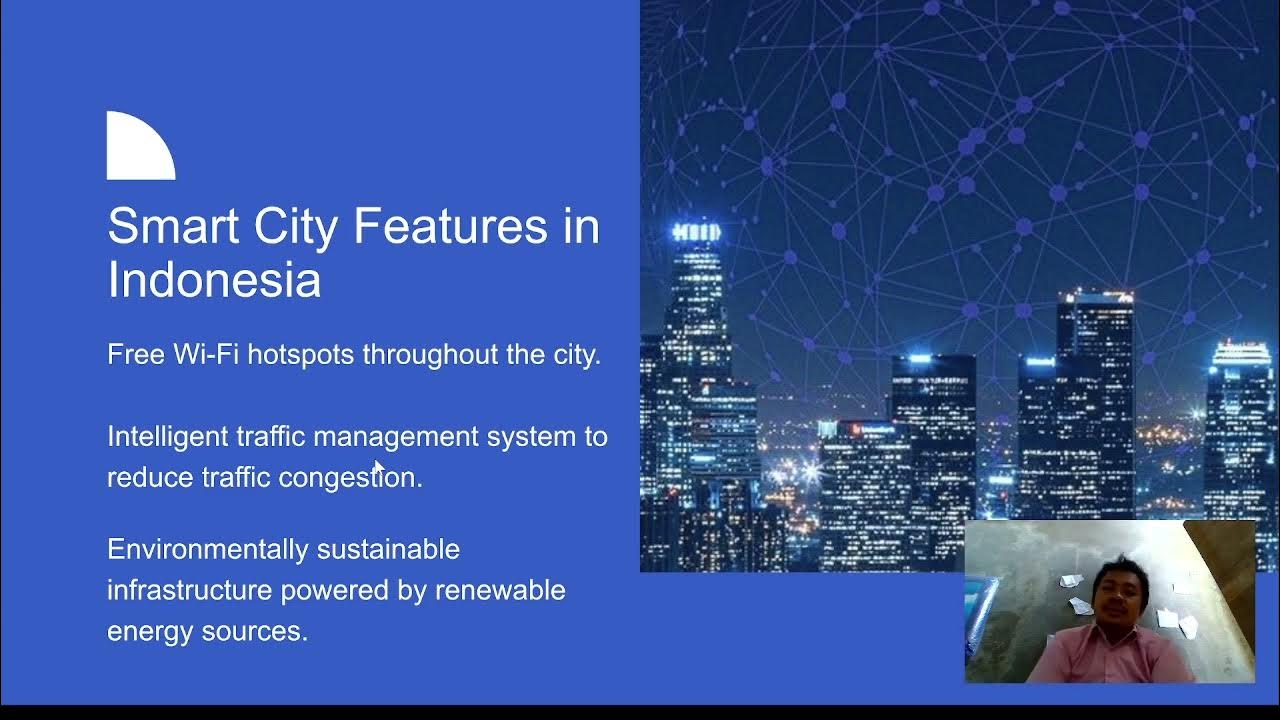Smart City: How do you live in a Smart City? | Future Smart City Projects | Surveillance or Utopia?
Summary
TLDRThe video script explores the concept of smart cities, which utilize big data, the Internet of Things, and 5G to tackle urban challenges like traffic, pollution, and energy consumption. It discusses the benefits, such as efficient resource use and improved public services, and the concerns, including surveillance and data privacy. The role of citizens in shaping these cities and the importance of data utilities for ethical data management are highlighted, along with the need for robust cybersecurity measures to protect against potential cyber threats.
Takeaways
- 🌐 The city of the future is envisioned as a smart, interconnected entity that uses technology to regulate traffic, save energy, and fight crime, supported by big data and the Internet of Things.
- 📈 Smart cities aim to address the challenges of increasing urban populations, such as traffic congestion, pollution, energy consumption, water usage, and waste management.
- 🌳 Projects for smart cities are emerging globally, including in Nigeria, South Korea, India, and Malaysia, with the goal of creating a livable city that can 'think' for itself.
- 🚗 Technology in smart cities includes smart poles for broadband, driverless cars for reduced accidents, and drones and robots for delivery services.
- 🌱 Innovations like urban farms growing salads underground and augmented reality for efficiency improvements are part of the smart city vision.
- 📱 The new mobile communication standard 5G is crucial as it enables the large-scale interconnected infrastructures needed for the Internet of Things.
- 🤖 Yonas Boom, a researcher at the University of St. Gallen, emphasizes that the goal of a smart city is to improve people's lives, starting with understanding what citizens want.
- 🔍 Making a city smart involves interconnecting devices, collecting data, and analyzing it to find solutions for citizens, which can include smart lighting and pollution control.
- 🏙️ Benefits of smart cities include more efficient use of resources, reduced waste, and increased citizen engagement in city planning, as seen in cities like Santander and Helsinki.
- 🔒 Data protection is a significant concern in smart cities, where vast amounts of data are collected. The challenge is to balance the need for data with privacy and security.
- 👥 Data utilities are proposed as a solution to manage data in smart cities, ensuring that data is handled responsibly and access is controlled for the benefit of all stakeholders.
- 🌍 The script raises questions about surveillance and data sovereignty, highlighting the need for responsible solutions that prioritize citizen interests and privacy.
Q & A
What are the primary challenges faced by cities as the urban population increases?
-The primary challenges include increased traffic, pollution, energy consumption, water usage, and waste management.
What is the concept of a smart city and how does it aim to address urban challenges?
-A smart city is an interconnected urban environment that uses technology, big data, and the Internet of Things to regulate traffic, save energy, fight crime, and improve overall efficiency and livability.
What is the role of 5G in the development of smart cities?
-5G serves as the engine for the Internet of Things, enabling interconnected infrastructures on a large scale and facilitating the communication necessary for smart city operations.
Who is Yonas Bom and what contribution has he made to the field of smart cities?
-Yonas Bom is a researcher at the Institute for Technology Management at the University of St. Gallen. He has published a book with guidelines for cities that want to become smart, focusing on improving people's lives.
What are the technical preconditions for making a city smart?
-The technical preconditions include making the city interconnected by adding sensors, collecting data, and analyzing it to find solutions for citizens.
How do smart cities benefit citizens in terms of resource efficiency and environmental impact?
-Smart cities can save taxes by using resources more efficiently, such as only irrigating public spaces when needed, emptying garbage bins when full, and reducing noise and pollution through underground waste collection points.
What is the concept of 'data utilities' and how do they relate to smart cities?
-Data utilities are publicly financed, independent organizations that manage, process, and control access to data in a smart city. They ensure that personal data is anonymized and provide a platform for various entities to develop smart city solutions.
How does the smart city of Santander in Spain utilize technology to save resources?
-Santander uses sensors to monitor public spaces and garbage bins, irrigating only when necessary and emptying bins only when full, thus saving resources and taxes.
What is the potential downside of smart cities in terms of privacy and surveillance?
-Smart cities collect vast amounts of data on citizens, which can lead to privacy concerns and surveillance issues. It raises questions about who ensures data safety and who has access to it.
How does the city of Helsinki address waste management in a smart city context?
-In Helsinki, garbage trucks have been replaced by an underground waste collection system, which reduces noise and pollution in the city.
What measures does Estonia take to protect itself against cyber threats in the context of digital administration?
-Estonia conducts annual international training on fighting cyberattacks, organized by NATO's cyber defense hub, involving over 20 nations, military, and tech companies.
Outlines

このセクションは有料ユーザー限定です。 アクセスするには、アップグレードをお願いします。
今すぐアップグレードMindmap

このセクションは有料ユーザー限定です。 アクセスするには、アップグレードをお願いします。
今すぐアップグレードKeywords

このセクションは有料ユーザー限定です。 アクセスするには、アップグレードをお願いします。
今すぐアップグレードHighlights

このセクションは有料ユーザー限定です。 アクセスするには、アップグレードをお願いします。
今すぐアップグレードTranscripts

このセクションは有料ユーザー限定です。 アクセスするには、アップグレードをお願いします。
今すぐアップグレード関連動画をさらに表示

Pertemuan 13 : Smart City dan Mobilitas

INTERNET OF THINGS ( IoT ) - PENJELASAN DAN MANFAAT IOT UNTUK KITA - VERITAS_ID

Pertemuan 2 : Teknologi Jaringan dalam IoT

Inovasi Smart City Berbasis Internet of Things

Transforming cities with technology

How megacities around the world are tackling their air pollution
5.0 / 5 (0 votes)
